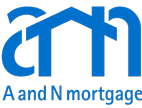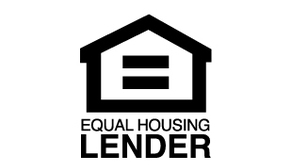The worldwide Coronavirus restrictions have created challenges in the mortgage loan 
Here, we’ll give an overview of dealing with COVID-19 challenges in getting a mortgage. We’ll also answer questions about the mortgage and student loan debt payments for those who have lost income due to the Coronavirus.
COVID-19 Challenges For Homebuyers
People have continued to buy and sell properties during the COVID-19 pandemic, but the lockdown and social distancing created complications. Mortgage lenders have had to get creative to keep the mortgage pipeline open. Here are a few questions and answers about how to deal with COVID-19 challenges.
My company’s offices are closed. How can I provide my final verification of employment within the 10 days before loan closing?
The Federal Housing Administration (FHA) and the Rural Housing Service (RHS) are allowing your employer to verify employment by phone. RHS will also let you verify your employment by email.
Fannie Mae and Freddie Mac will also allow verbal verification, and they may allow emails as well. You should feel comfortable to ask if they’ll accept other types of verifications if you need it during these difficult times.
If you can’t provide an acceptable form of verification, lenders will require higher reserves to cover the risk.
Have the FHA, Fannie Mae, and Freddie Mac raised rates and fees on borrowers with lower credit scores or smaller down payments?
The short answer to this is no. The Government Sponsored Enterprises (GSEs) of the FHA, Fannie Mae, and Freddie Mac have made no such changes.
Individual lenders, though, are not necessarily following the GSEs’ guidance. It’s possible they’re increasing the fees on those with lower credit scores and down payments. The rationale behind this choice is that the cost of servicing such loans has soared because of forbearance.
Under forbearance, the loan servicer must keep paying PITI to the investor. The volume of forbearance in response to COVID-19 is unprecedented. And lower-credit borrowers are more likely to take forbearance.
Ginnie Mae, another GSE, has announced a new program that addresses lenders’ concerns and improves mortgage financing access. The program helps cover lenders by advancing funds to make the mandated pass-through PITI payments to investors during forbearance.
Do Fannie Mae and Freddie Mac require a “wet signature” on all documents?
Fannie Mae and Freddie Mac require several documents to be signed before they’ll purchase a mortgage from a lender. Both GSEs allow electronic signatures on just about all mortgage-related materials, except for the promissory note.
Meeting face-to-face with lenders to ink a wet signature on a promissory note may be a problem in some areas of the country. It shouldn’t be, though, because real estate, financial services, and government office for documents and recording are “essential services.” The National Association of Realtors (NAR) is working with state and local associations to have local policy reflect this and enable wet signatures.
Can I use forbearance to buy/sell my home?
No. The purpose of forbearance is to give homeowners a chance to get through a difficult financial patch. It’s not intended as a stimulus or incentive to buy or sell. Payments in forbearance are delayed but not forgiven.
According to the Consumer Financial Protection Bureau’s (CFPB) guidelines, forbearance should be used only by homeowners who are in genuine financial distress. They’ve lost their jobs or income due to COVID-19, and they can’t afford to make house payments.
The massive surge in forbearance is causing lenders to tighten requirements for new homebuyers. When homeowners use forbearance for trivial reasons, lenders will further tighten restrictions and make it even harder to buy and sell real estate.
Personal Finance Questions
Some people aren’t worried about getting new mortgages—they’re concerned about paying for the ones they already have. These people have lost their jobs or taken painful income cuts due to coronavirus.
Of course, coronavirus-caused financial woes don’t just impact mortgages. They may ding credit scores and affect repayment of other obligations such as student loans.
For those who have lost jobs or significant income due to COVID-19, here are answers to common questions about mortgages and debt repayment:
What can I do to avoid falling behind on my mortgage?
Government entities such as Fannie Mae, Freddie Mac, and the FHA are offering forbearance for six months. During this time, lenders are required to waive late charges, fees, and penalties.
You need to apply for forbearance, which freezes your payments. You’ll have to make up those payments, but the GSEs will modify the loan to tack on those payments to your mortgage. Owner-occupied, single-family homes qualify for forbearance, as do second homes and investor properties.
Some private banks are offering forbearance on non-federally-backed loans. Get in touch with your loan servicer to see if it can provide you with some relief. For more information, check out the CFPB’s (Consumer Financial Protection Bureau) primer and video about what homeowners should look for in forbearance or other relief options.
When you speak with your lender, document everything. Note the date and time of your call, and write down the name of the person you spoke with. Stay on top of deadlines.
If I take forbearance or even investigate that option, I’ve heard that I won’t be able to refinance or get a new mortgage or that I’ll have to wait 12-18 months. Is that true?
Not necessarily. It depends on whether you’re current on top of your payments and who is backing your loan.
You can refinance or get a new Fannie Mae or Freddie Mac mortgage immediately if you took forbearance and are current on payments. If you’re on a forbearance repayment plan and made three on-time payments under that plan, you’re eligible for credit to refinance or buy another home.
Private lenders may or not allow a future mortgage credit for a homeowner who took forbearance. As always, touch base with your lender.
What should I do if I miss a few credit card payments due to COVID-19?
The Coronavirus Aid, Relief, and Economic Security Act (CARES) protects credit scores from January 30th, 2020, through 120 days after the enactment of the national emergency. Unfortunately, that clock has already run out, but the country is still dealing with its coronavirus-weakened economy.
Your best bet is to reach out to your creditors. Perhaps you can temporarily pay a smaller amount, skip some payments, or boost your limits.
A single late payment can sink your credit score. Unfortunately, that blemish stays on your credit score for seven years. Ask for help and pay something.
It may take a long time to get through to lenders on the phone. It’s an unfortunate, but very necessary step.
What can I do about student loan debt?
The CARES Act provides six months of forbearance on federal student loans. However, you have to contact your loan servicer to get a forbearance. As always, speak up if you need help and document your interactions.
Conclusion
The effects of the COVID-19 lockdown and social distancing continue to reverberate throughout the US economy, including the mortgage industry. With offices shut down, buyers experienced problems obtaining needed approvals, appraisals, and signatures. In many cases, quasi-governmental agencies came up with workarounds, but private lenders didn’t necessarily follow suit.
People who lost their jobs or a significant portion of their income due to the coronavirus have a few protections under the CARES Act. However, those protections are expiring and provide delays, not forgiveness. Individuals should communicate with their lenders and keep paying something to avoid late payments.
If you have any questions or concerns feel free to reach out to our team of mortgage experts here at A and N Mortgage.
A and N Mortgage Services Inc, a mortgage banker in Chicago, IL provides you with high-quality home loan programs, including FHA home loans, tailored to fit your unique situation with some of the most competitive rates in the nation. Whether you are a first-time homebuyer, relocating to a new job, or buying an investment property, our expert team will help you use your new mortgage as a smart financial tool.







